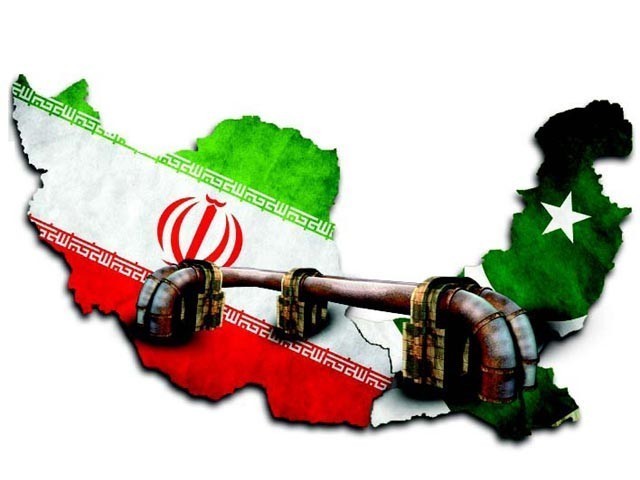
Due to external pressures, Pakistan may well abandon the pipeline project altogether....LOL LOL
For a government often accused of indecision and weakness, Islamabad has been strikingly defiant about its determination to pursue a natural gas pipeline deal with Iran.
Pakistan’s strident tone has not changed in light of Washington’sheightened sanctions regime vis-à-vis Iran, which bans countries from having commercial transactions with Tehran. The foreign ministry has declared that the sanctions do not affect the pipeline project. Other Pakistanis, however, fear that the sanctions may well present problems. One prominent lawyer has suggested Islamabad go so far as to lobby the UN to ensure the pipeline project stays alive.
Underlying Pakistan’s hearty embrace of the pipeline is the perception that the deal will ease the country’s crippling energy crisis. In reality, the pipeline is no silver bullet for energy insecurity – and it may well not even be consummated.
To be sure, in a country with a daily gas shortfall of one billion units per day, the pipeline would provide desperately needed supply. As Iwrote last year, the project is expected to furnish 750 million cubic feet of natural gas to Pakistan daily, with power generation capacity projected at 5,000 megawatts – roughly equivalent to Pakistan’s entire energy shortfall. Additionally, despite what Washington may think, there are no better pipeline alternatives. The US constantly pushes for the TAPI pipeline, a project that has gathered steam lately with Turkey’s decision to come on board and recent India-Pakistan negotiations on the scheme. Still, given the security situation in Afghanistan, it is hard to imagine the pipeline not getting blown up by insurgents somewhere along its envisioned route.
That all said, one must pose a critical question: whose energy security would be enhanced by those added 750 million cubic feet? Not the masses of impoverished Pakistanis – and half the entire country - who rely on traditional, non-commercial fuels such as biomass and firewood. All the talk you hear about Pakistan’s need for natural gas? It’s all tied to the commercial sector; it’s in this sphere where natural gas constitutes 50 percent of the total energy mix. In essence, the energy woes of millions will not be affected – much less alleviated – by an increase in natural gas supply.
And then there is the issue of demand management. Suppose that natural gas suddenly courses into Pakistan. While the expectation is that this would instantaneously light up homes, fire up factory machinery, and boost a flagging economy, the reality is very different. Unless this new infusion of supply is managed properly, it would simply be squandered, wasted, and stolen – just as precious supply often is today. One can make the same argument about water - if the western rivers of the Indus Basin were to triple in size, sending water cascading into the parched nation, benefits would not materialize so long as it was siphoned off by wealthy landowners; lost to leaky canals; and wasted in irrigation. This is a basic reality: without good resource governance, supply boosts will yield few dividends. So far, Pakistan’s chief efforts at improving energy governance have consisted of scoff-inducing measures such as bans on neon billboards and an end to all-night wedding parties.
Keep in mind the geopolitical context as well. Due to external pressures, Pakistan may well abandon the pipeline project altogether. Washington has intimated that it may offer Pakistan cheap gas in an effort to wean Islamabad off the pipeline. While this may seem a silly strategy, don’t forget the media reports from last September revealing that Washington was making headway in getting Pakistan to scupper the deal. Yes, Pakistan-US ties have grown tenser since then, yet one sobering takeaway from the troubled relationship is that Washington typically gets what it wants.
Pakistan may also succumb to pressure from Riyadh – Iran’s chief regional rival, and not only a close ally of Pakistan, but also a chief exporter of oil to Pakistan. One cannot rule out the possibility of Washington leaning on the House of Saud to pressure Pakistan to distance itself from the Iran pipeline.
Make no mistake; Pakistan is in fervent need of energy, and ample amounts will need to come from abroad. Yet it may behoove Islamabad to look elsewhere – such as India, where momentum is building for enhanced energy cooperation. A deal was reached last fallto export a modest quantum of Indian electricity over the border, while just days ago the two sides agreed to establish a Joint Working Group on Petroleum to explore energy trade.
For all the heady talk about the Pakistan-Iran pipeline, Pakistan has yet to begin construction of its 700-kilometer portion. It has made much more progress laying the groundwork for energy activities with India. It’s high time that this latter opportunity be seized....



No comments:
Post a Comment